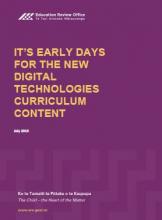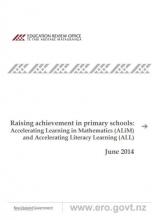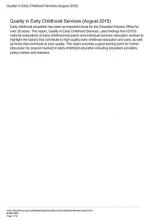Science in New Zealand schools and early childhood services - series summary
Science is important – we rely on science and scientific thinking in almost every endeavour in our modern society. High quality science education at school is essential for learners who want a career in science, but it is also important for all learners to help them understand the scientific issues that whānau, communities, and nations face. Issues such as climate change, healthy living, and innovation all depend on science.















